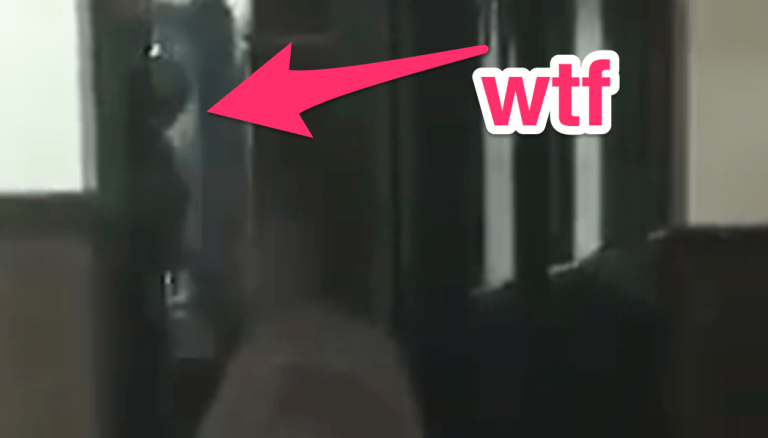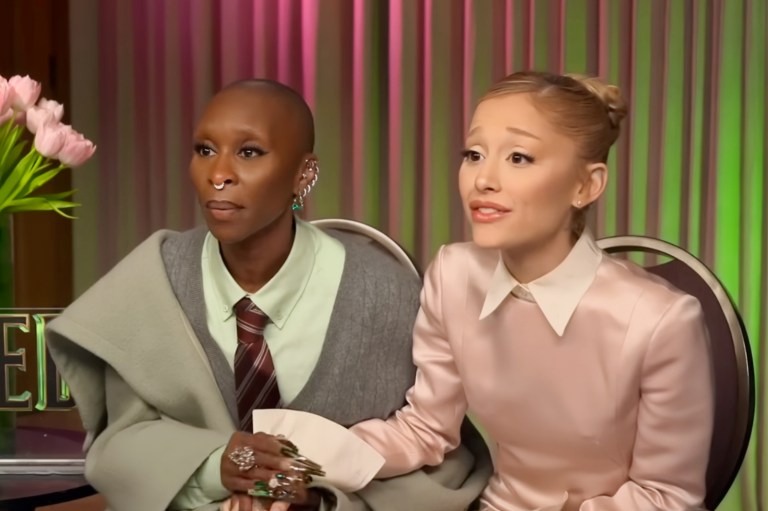
‘Robots’ Is Best When Viewed Through an Anti 9-5 Lens — Not a Nature of Humanity One
By ![]() Josh Lezmi
Josh Lezmi
The 2023 film Robots is yet another AI-themed movie — a sci-fi subgenre that seems to be experiencing a resurgence alongside the widespread release of ChatGPT — following in the footsteps of The Creator, M3gan, Heart of Stone, and Mission: Impossible — Dead Reckoning. Yet, unlike its predecessors, the Shailene Woodley and Jack Whitehall-led film is a light-hearted rom-com that eschews the globally destabilizing sentient-robots-will-destroy-society themes in favor of more individualized corruptions of technology.
Jack Whitehall plays a womanizing young man born into wealth and privilege. He buys a $2 million robot facsimile to date women until it’s time to get them in the sack; then he steps in. Woodley portrays a gold digger who negotiates her way (sans financial resources) to a facsimile she uses as a stand-in for dates and sexual encounters. The facsimile uses her “womanly” ways to get wealthy suitors to buy her designer bags and jewelry she keeps or pawns for money. It’s important to note that Whitehall also sends his facsimile to his 9-5, so he can spend his time playing video games and enjoying life on the back of a robot uncompensated for labor.
The film premiered to critical condemnation, with many outlets noting the film’s lack of laugh-out-loud moments and utterly unmoving climax. What could have been a satirical triumph commenting on the nature of humanity gives way to mushy rom-com formulas that stifle its original premise.
While the romantic subplot feels unnecessary, as the facsimiles begin to fall for one another, as do the humans who paid for their creation, the way the robots are exploited gets at just how far the millennial generation will (understandably) go to receive justice for the broken system we have unavoidably acquired.
The current system is indisputably trash: There’s college, followed by insurmountable debt (unless your family has hundreds of thousands to spare), and then you graduate with a glorious BS (double-meaning intended) that gets you a job that won’t pay for a joyful existence in popular societal areas. Millennials and Gen Z-ers are simply expected to buy into a 9-5 life without the benefits that older generations reaped as a result of their efforts. Where will our pensions be? Where’s our white picket fence, 2.5 children, and a golden retriever on a middle management salary? Replace the green lawn and picket fence with a crumbling apartment building that boasts squeaky pipes, swap kids with dogs, and dogs with a couple of succulents, and there’s our college-educated budget…spent. And it’s tight.
So, why wouldn’t we, if the opportunity presented itself, buy a robot that could do it all? Why wouldn’t we seize the chance to silently stick up our middle fingers at the capitalist society that would rather us die typing away with carpal tunnel syndrome, never receiving a promotion as Boomers and Gen X-ers hoard power?
Both Whitehall’s Charles and Woodley’s Elaine may use their doubles for nefarious purposes, but the underlying motivation is clearly a way out of the “system.” A life outside the 70-year-long corporate existence — outside the meetings that could be emails and the emails that aren’t necessary.
With doubles, Charles and Elaine can enjoy their youth while they have it. They can spend their time as they please, making passive income as their sole financial means until the day they die. And, when they age, they can pay for a new facsimile that looks older (they’ll have the money). At that point, their robots will have been promoted to CEO at Daddy’s company and risen to high-class escort, respectively. Millennials who watch this movie may not approve of Charles’ womanizing ways and Woodley’s manipulative gold-digging, but the relatability in the anti-9-5 messaging will surface as the supreme takeaway. It’s an escape. It’s a dream-like way out come to fruition. (Not to mention, we don’t totally hate Elaine’s Robin Hood-esque take-from-the-rich-and-give-to-the-poor approach; she’s simply the poor that she’s giving to. And, as she says, if these men can purchase these gifts without a second thought, who is she really hurting?)
Yes, the robots grow sentient and realize that they’re being exploited, but, sans that little inevitable hiccup in every AI-themed movie, it’s quite the deal. The movie also fails to establish the AI bots as anything more than electrical-powered headaches to our protagonists, so there’s no emotionally stirring what-does-it-mean-to-be-human ponderance that may have been intended. Unlike The Creator, the movie fails to build sympathy for the bots; they’re interesting plot devices, but each time they get electrocuted — leading to googly-eye mayhem — we’re reminded of their intrinsic wiring. So, we’re still over here simply dreaming about sleeping in every day. The working-class robot does the dirty work while its human counterpart takes on a life of adventure…where can we sign up? You can have our succulents.
Robots is streaming on Hulu.











